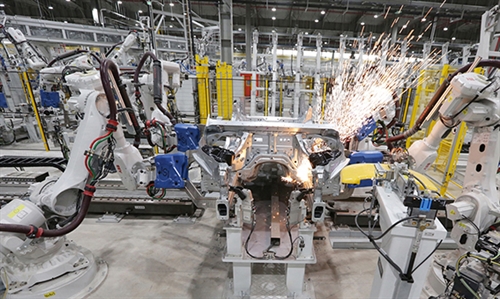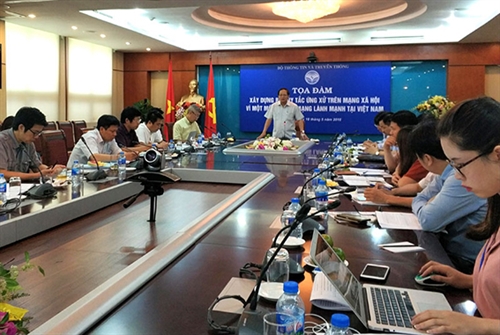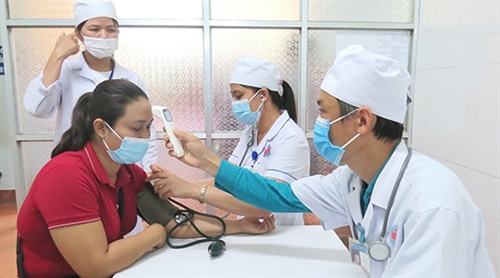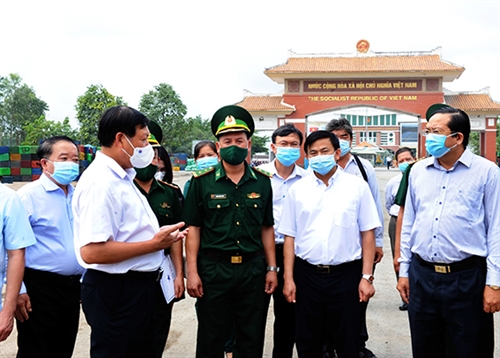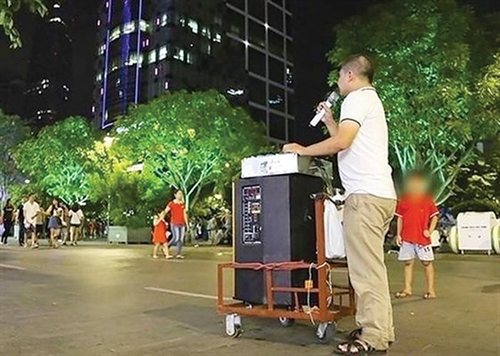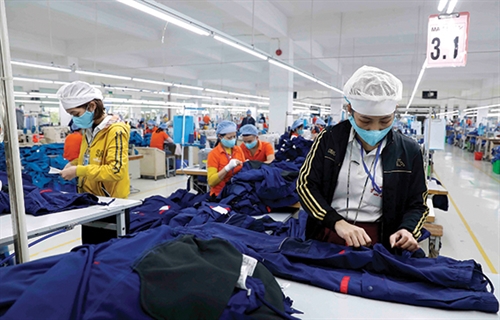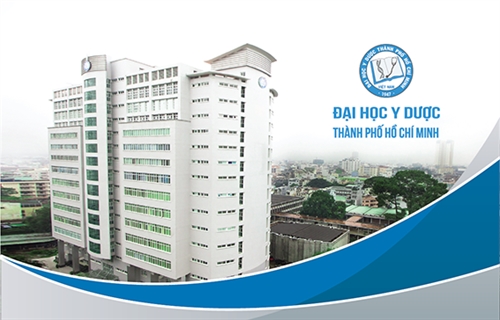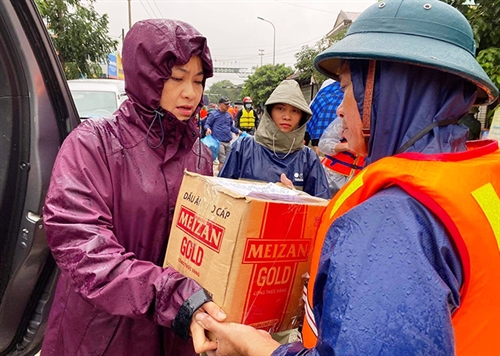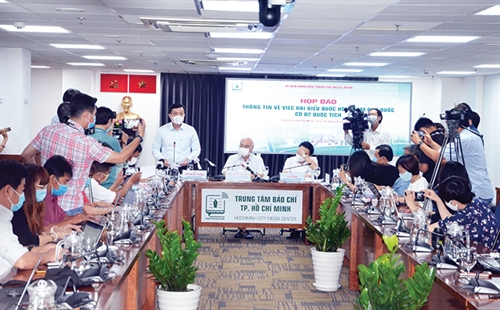Nguyen Quynh Van
Have you ever imagined yourself being stuck in a place thousands of kilometers away from your home while a deadly disease is ripping through and you can hardly go out to earn a living or even to get food and other essentials?
This is the exact situation of many expats in Vietnam during the recent outbreak of COVID-19 in the country. Ho Chi Minh City, the country’s largest economic hub, and its two neighboring provinces of Binh Duong and Dong Nai imposed a strict social distancing order under Prime Minister Directive 16 from July 9. Once Directive 16 is in force, all non-essential businesses and services are shut down, while public transport including buses and taxis is suspended. The gathering of more than two persons is banned and people are required to stay home unless for food, medicine, or emergencies. Ten days later, on July 19, 16 southern localities, including the Mekong Delta region, began applying strict social distancing measures. On July 23, Da Nang city authorities banned delivery and ride-hailing services and urged people not to go out unnecessarily. On July 24, the capital city of Hanoi was locked down.
A tough time for all of us
Adapting to social distancing conditions is not easy for anyone, let alone foreigners who do not have a family around for support.
Adrian John Leeds, a British photographer who has been living in Hanoi for three years, said he was struggling to buy food during the early days of the lockdown.
“In the beginning of the lockdown, it was really tough,” he told the Viet Nam News daily.
“The only place where I could safely buy food was my local small grocery store. But they ran out of food very quickly and all that was left was “student food” like noodles and sausages.” As a result, Leeds lost three kilograms over a month.
Leeds is still lucky as he does not encounter too severe financial hardship. According to Christ Saint, an Australian retiree living in the central town of Hoi An and currently the administrator of a Facebook group for the expat community in Da Nang, Hoi An and Hue with nearly 10,000 members, not a few of them are now bearing the financial burden as they have lost their sources of income.
Limited access to official information is another problem as most regulations are announced in Vietnamese without foreign-language translations while many expats cannot speak the language.
“Expats are often in the dark to the details of any government action. This makes it harder for them to comply and difficult for them to access services,” Christ Saint was quoted by Viet Nam News as saying.
Saint was right. Lack of information also makes expats feel somehow uncertain and confused. Although Vietnam has already kicked off its largest-ever vaccination campaign, expats, especially freelancers, still worry whether they are eligible for vaccination amid the shortage of vaccines in the country. Dave Tonetti, a Canadian living in Vietnam, revealed to online newspaper VnExpress that being unsure about when and how to get vaccinated, he had even contacted the Canadian consulate to ask about the prospect of providing vaccines for its citizens abroad.
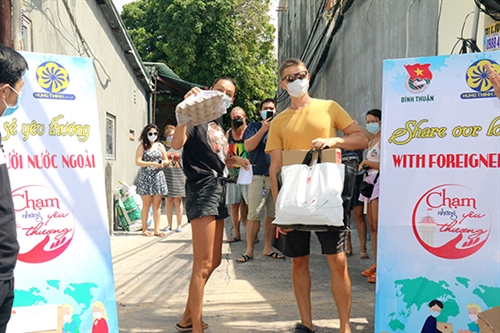 |
| Foreigners in Phan Thiet city, Binh Thuan province, receive supportive packages__Photo: Nguyen Thanh/VNA |
Expats also meet with difficulties in extension of their visas and work permits amid lockdown in big cities.
As reported by VnExpress, Olivia Taylor (name changed), an Australian living and working as an English teacher in Ho Chi Minh City, has been living in “a state of nervousness.” As her visa is going to expire, Taylor asks her employer to apply for a work permit. She has 10 days left, “but I still don’t know if my application will be accepted or not. I hope that everything will work out for me.”
In a worse situation, Robert Miller (name changed), an American, said he had just lost his second job when the foreign language center in the northern province of Bac Giang where he teaches English closed. Earlier, Miller had already given up his main job in the IT sector. Describing his predicament as an “impossible situation” in terms of getting a work permit, Miller said he had just days left on his visa.
Miller, like Taylor, loves being in Vietnam and wishes to find a job to settle down here. But the pandemic has made getting a new job extremely difficult.
“I don’t know what to do right now,” he told VnExpress.
“No one is left behind”
This is the principle laid down and always adhered to by the Vietnamese Government since the first outbreak of the pandemic and expats are no exception.
Supportive packages for everyone in need
On September 3, Adrian John Leeds was surprised by local officials who came to his house and gave him a COVID-19 supportive package, a bag full of food, medical supplies and VND 500,000 (USD 22).
“I am very happy with the support I have received, even if it’s a small gesture,” Leeds told Viet Nam News.
“I was not expecting anything. I felt like I was not forgotten. It seems like the Government wants to look after its expat community,” he added.
Leeds was not a special case.
In early September, the Hanoi Union of Friendship Organizations, in coordination with the municipal Fatherland Front Committee, handed over hundreds of gift packages to foreigners living in the city and facing difficulties due to the pandemic.
In the central city of Da Nang, eight hotlines in English, Japanese, Korean and Chinese were set up in late August to help foreigners get support for solving their difficulties.
According to Nguyen Thuy Anh, deputy director of the city’s Department of External Affairs, the hotlines received about 560 calls, messages and emails from foreigners and overseas Vietnamese relating to issues like support to buy food, essential goods and medicines, visa extensions, procedures to go to the airport, or registration for vaccination.
“The department has coordinated with district-level People’s Committees to buy and present free food to nearly 120 persons in difficult situations,” Anh told Viet Nam News.
As for Ho Chi Minh City, according to a representative from the municipal Department of External Affairs, supporting disadvantaged foreigners was a policy set out by the municipal authority.
Equitable access to vaccines
At a press briefing on June 24, Ministry of Foreign Affairs’ spokeswoman Le Thi Thu Hang affirmed Vietnam’s policy of non-discrimination in the COVID-19 vaccination campaign.
“There is no discrimination between Vietnamese and foreigners,” Hang said, adding that the Vietnamese Government always cares for and supports foreigners living, studying and working in Vietnam so they can live normally and safely, and receive medical care and intensive treatment when necessary.
Words have been turned into action.
On August 10, nearly 18,000 expats living in Ho Chi Minh City’s District 7 were invited to receive their first COVID-19 vaccine jabs amid the city’s relatively limited supply of vaccines at that point of time. According to Vice Chairman of the Ho Chi Minh City People’s Committee Duong Anh Duc, the municipal administration had ordered the health authority to consider the distribution of vaccine doses to vaccination points, with foreigners residing in the locality taken into consideration.
Later on September 6, Prime Minister Pham Minh Chinh sent an official telegraph urging local administrations to continue organizing free-of-charge vaccination for foreigners, regardless of their nationality, residency and employment status.
On September 14, Gary Austin, an English teacher who has been living in Vietnam since 2016, received his first vaccine shot without having to wait for authorities’ invitation or make prior registration, together with thousands of residents in Ho Chi Minh City’s District 3, both locals and expats.
“I’m glad for getting vaccinated today,” Austin talked to Phap luat Thanh pho Ho Chi Minh (Ho Chi Minh City Law) online newspaper, adding that the vaccination has been organized conveniently, facilitating foreigners’ access to vaccines.
Automatic stay extension
To solve visa-related problems arising from the outbreak of the pandemic, the Ministry of Public Security has recently issued guidelines on implementation of the “automatic stay permit extension” mechanism for foreign tourists stuck in the country due to COVID-19.
Accordingly, those who entered Vietnam on visa waiver programs, e-visas or tourist visas on or after March 1, 2020, are permitted to stay in the country until September 30, 2021, without having to carry out procedures for stay permit extension. Those who entered Vietnam before March 1, 2020, are still eligible for the same policy if they can prove that they are stuck in the country for reasons related to the pandemic beyond their control. The automatic stay extension mechanism also applies to foreigners lawfully working for Vietnam-based organizations and enterprises on the condition that their employers provide a guarantee for their stay in Vietnam.-
